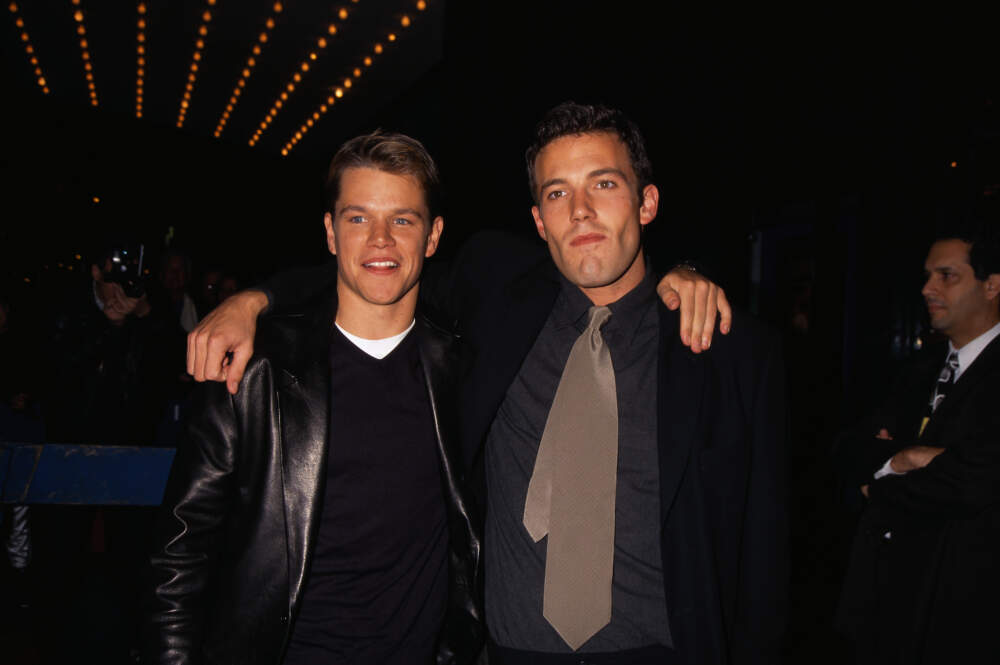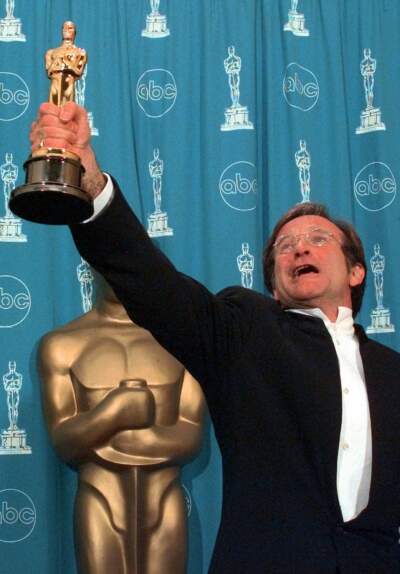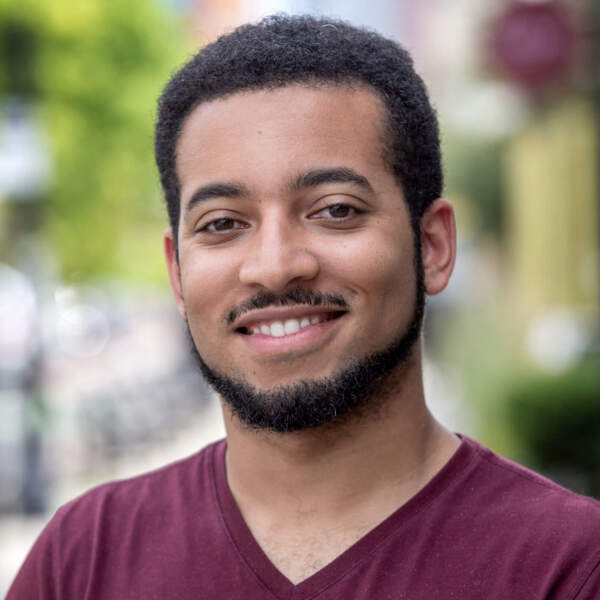Advertisement
Set in Boston
How locals Matt Damon and Ben Affleck made the setting of 'Good Will Hunting' in Boston feel real

Back in 1997, an unknown kid from Cambridge got together with his high school buddy to write and star in a movie about a wisecracking, working-class genius from South Boston trying to figure out what he wanted to do with his life.
The kids? Matt Damon and Ben Affleck, of course. The film? The Oscar-winning 1997 flick "Good Will Hunting," which also starred the late Robin Williams.
For Radio Boston's "Set in Boston" series, we discuss the movie with Bruno Guaraná, from Boston University's Department of Film and Television, film critic Allyson Johnson, and Tim Miller of Cape Cod Wave Magazine and Cape Cod Community College.
Interview Highlights
On why starring two Boston area locals, Matt Damon and Ben Affleck, worked better than using the top actors at the time:

Miller: "I think it works because it seems so real. They seem so real in those roles, Affleck and Damon. Could somebody who isn't from Boston, who doesn't understand Boston, do the same thing? Maybe, but it's hard for me to imagine anybody else in those roles. You know, there's certain movies that are like that where these miracles happen. It just seemed like the perfect combination."
Guaraná: "The code switch that they do with their accents — when they're within the Harvard bar and Ben Affleck tries to tone down his accent to sound smarter. And you have Robin Williams not have the same accent that Matt Damon and Ben Affleck do. So all of these things are very subtle, but come across in regards to their class and their ethnicity in an effort to fit in, or to get the girl, or to be buddy-buddy with their male friends and present their masculinity."
On how the one big role for a woman in this film comes off today:
Johnson: "I think for the first half [Minnie Driver's character] is so well written that it's almost upsetting by the second half where they kind of do this bait and switch where she stops being her own individual character who has her own agency, and it becomes about him.
"Minnie Driver is just so charming and charismatic in the role that I think it kind of overcomes a lot of the little flaws of her writing. And again, her and Matt Damon have a decent amount of chemistry that you can kind of push aside the fact that around the middle mark, around the part where he has his outburst and gets physical with her, she just stops being a character who actually has her own agency and is her own person, but he is our hero. We're supposed to see him as protagonist, and we're also supposed to kind of forgive that moment, but it definitely depends on who is the actual hero and are we supposed to be rooting for them."
On how the film chooses to deal with class:
Johnson: "It's on the nose, for sure. It is focusing on straight, cis, white men. So really, how far are they digging into classism in Boston? I think for the most part, because people call him out for it and they're asking him, you could be doing the honorable job like you're saying, but instead you're choosing to work at these prestigious schools to get your leg up — which people do — which makes sense. So I wouldn't say it's the most delicately handled film about class, but I think it could certainly have been a lot worse, especially considering who was writing it, which was two white guys from Boston."
Guaraná: "I find it significant that the film discusses class at all. That's not very common, especially in the '90s in American films. But what I find troubling in this is that the film paints a picture of the only possibility to overcome his class background is through this amazing gift that he has that's so unique. ... So in some ways the film is addressing class, but it gives a solution that's utterly unrealistic."
Advertisement
On how this movie affected public perception of South Boston:
Johnson: "I did watch it going, 'Man I miss it when people cared about set design.' All the apartments feel so lived in. And I don't know if that makes it cool to want to live there. But as a film viewer, I'm so used to seeing things these days that look like it's straight out of a Pottery Barn catalog — like nothing has been touched. Whereas when you look at something like this ... you are watching a place that clearly has been loved, clearly has been lived in, friends are comfortable living in there."
Radio Boston producer Khari Thompson says Damon's character's house in the movie, 190 West 6th Street in South Boston, is a three decker. The characters lived on the first floor, but recently the second floor apartment was available to rent at around $4,500 per month.
Click the red player button atop this post to listen to Radio Boston's full conversation, hosted at the Coolidge Corner Theatre.
This article was originally published on June 02, 2023.
This segment aired on June 2, 2023.



